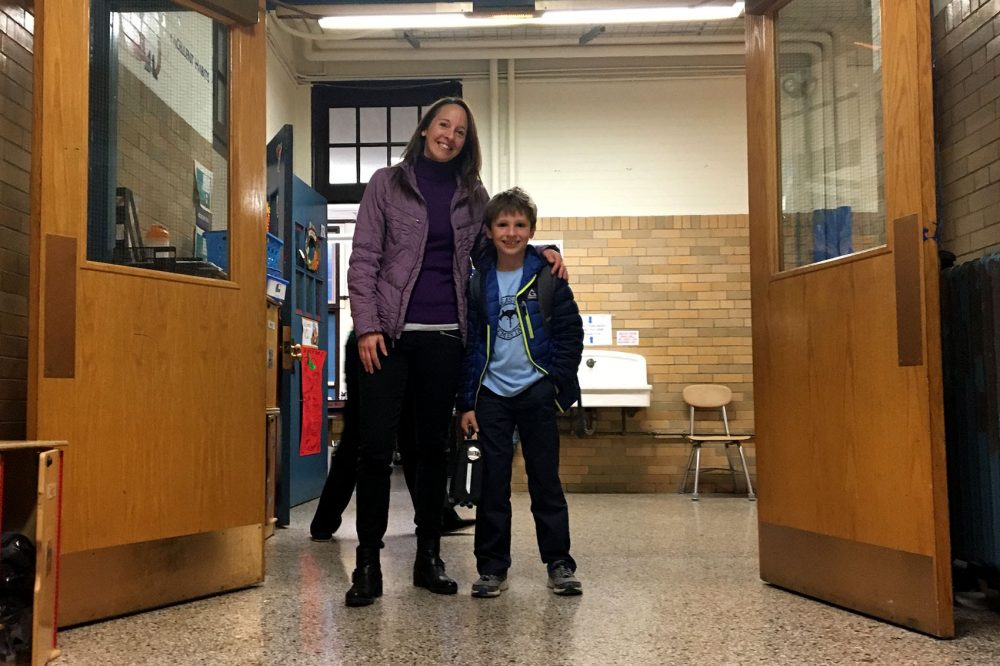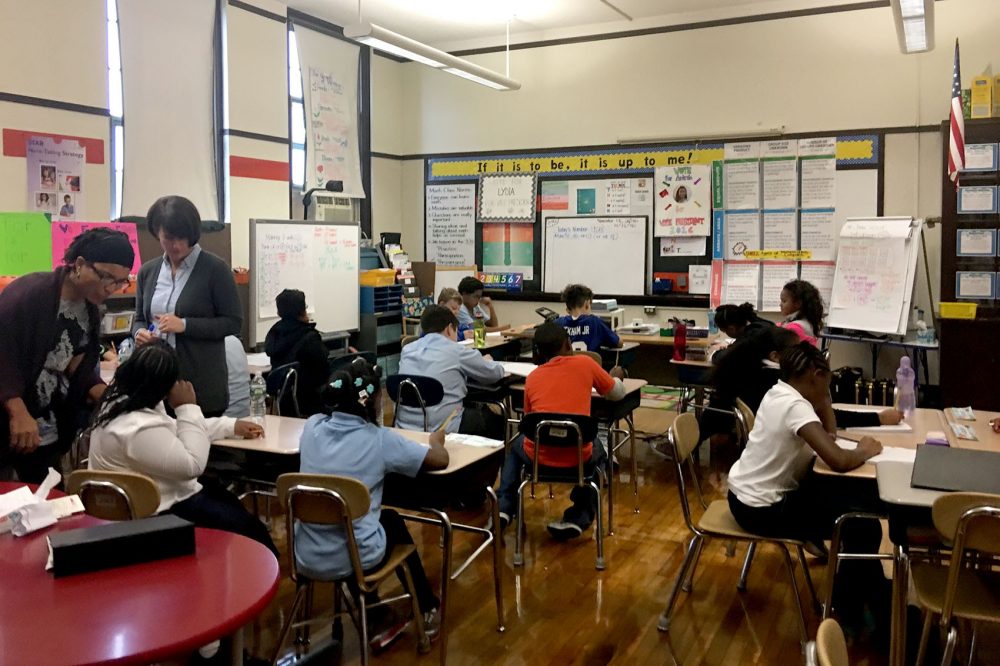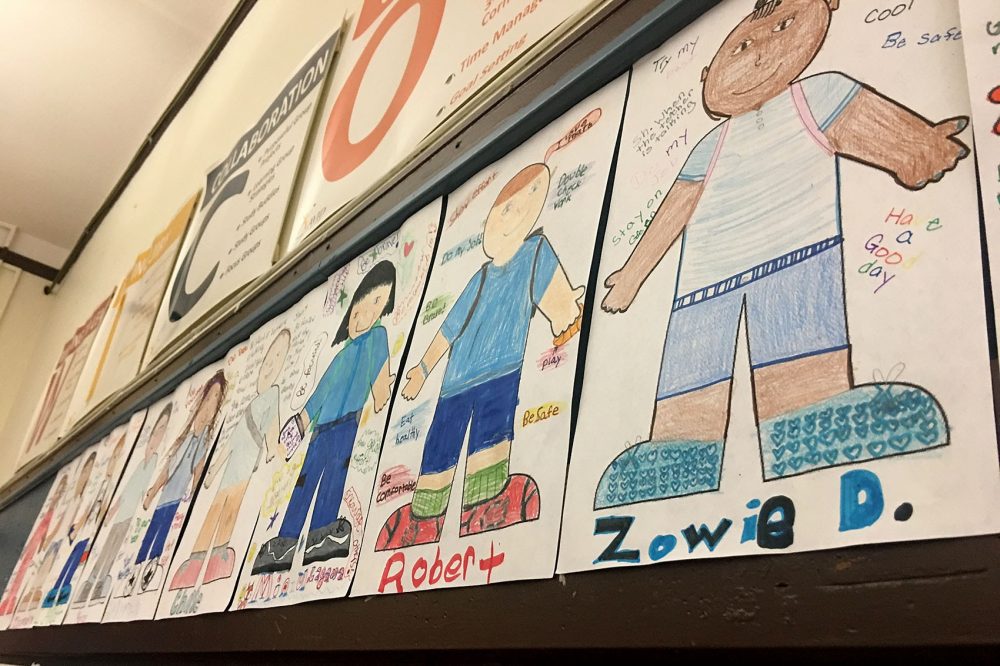Advertisement
How One Boston School Helps Young Students With Complex Feelings About The Election
Resume
When it comes to the outcome of the presidential election, kids are experiencing the same feelings and emotions as adults: everything from fear, anxiety and dejection to excitement, hope and vindication.
The biggest difference, though, is that children often don't have the language or life experience to understand or express those feelings.
We visited one Boston public school, Phineas Bates Elementary in Roslindale, where students, teachers and parents are navigating the tough terrain of teaching empathy and respect after the election.
It's a been whirlwind of a week for one Bates student, 8-year-old Toby Damon.
First, he made the big decision to switch from violin to clarinet. Then, the presidential election happened. Toby says he was "spooked."
He'll never forget what his friends at Bates were saying the morning after the results came in.
“A lot of people were saying we're doomed and stuff,” he said.
Toby said his mom has been pretty good at explaining some of what he and his sister heard during the campaign.
For instance, he thought Donald Trump might literally build a wall around the entire United States.
His mom cleared that one up for him.
And she gave him some tips for dealing with his friends.
“My mom has said that we need to stand up for other people who are scared and worried,” Toby said.
Now, he’s trying to reconcile everything he's heard. Toby is white, and he's processing what this means for his friends who are not.
It's confusing — and stressful.
Again, he's 8.
“A lot of my friends are different races,” Toby said. “Like one of my best friends I've known since preschool, he's, his mom is Chinese, and another one of my friends, he's Brazilian, so...”

Educators are on the front lines. They’re dealing with the complex emotions of students like Toby. And they see these emotions play out in different ways.
Massachusetts and other parts of the country have had reports of hateful intimidation and harassment at schools since the election.
The Southern Poverty Law Center says it has received 99 such reports at K-12 schools since Nov. 9, part of a general increase in reported hateful incidents. (The center also says Massachusetts was the site of 19 out of the more than 400 reports of hateful acts it has received post-election, although it does not specify how many of the 19 may have taken place at schools.)
But more often, said Bates principal Andrew Vega, kids are feeling their parents’ anxiety.
“I think as much as all of our families and us try to shield the kids from all of that language,” Vega said, “they heard it and they saw it.”
So, like many Massachusetts schools and districts — including Boston Superintendent Tommy Chang — Vega wrote a post-election letter to families.
Bates, he wrote, reflects the nation we live in: seven racial demographics, 15 languages spoken, 31 national origins.

And while some families are upset with the results of the presidential election, others are elated.
“We are clearly a divided nation, and one of those divisions is along issues of race,” Vega said. “And I think it's important for us as a school staff, if we are going to support one of the most diverse school communities in the Boston Public Schools, we need to be aware that this is the climate under which our students and families operate.”
Vega's letter has spread like wildfire -- thanks in part to the website Upworthy, which shared it to thousands.
Vega stresses that Bates is a nonpartisan "safe space."
Teachers don't bring up the election unless a student initiates the discussion. Then, he says, they “give the kid airtime, listen, just like we always do.”
This approach has been comforting to Toby’s mom, Barb Damon.
The outcome of the election has forced her to have all kinds of conversations with her kids about subjects she never thought she'd tackle at this age. She's doing her best.
“We've really had conversations about everything from reproductive rights and what feminism is and what sexism is,” she said, “and that was not something I was expecting to have happen, yet.”
While Toby described the first few days after the election as "rough," he said he actually likes talking to his school friends about Donald Trump and what his win means for America.
At Bates, he said, “I feel like it's a place that's safe.”
A safe place -- a second home -- where kids, just like adults, are learning how to interact, process and move forward, post-election.
This segment aired on November 17, 2016.
